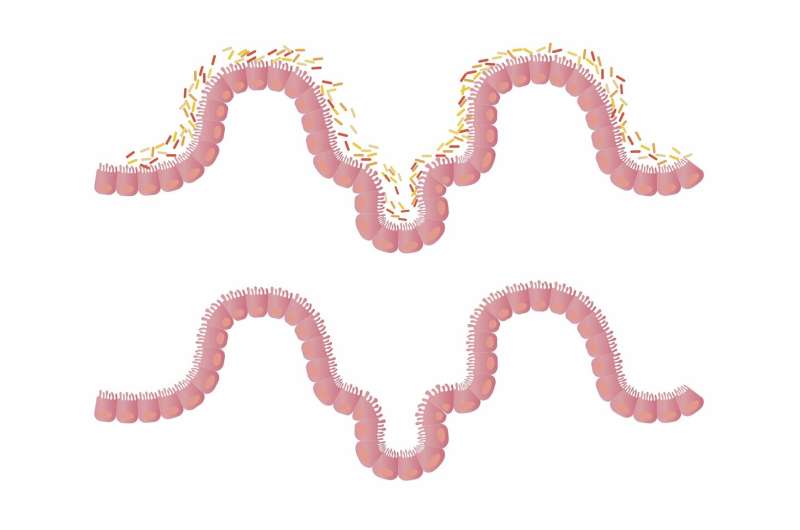How the immune system maintains a healthy gut microbiota

Researchers from Universitätsmedizin Berlin have uncovered a critical mechanism that controls immune reactions against microorganisms in the intestine. The results of the international study may contribute to the development of new therapies for chronic inflammatory bowel disease. The study is published in the journal Nature Immunology.
The immune system protects against the spread of pathogenic germs in the intestine. At the same time, it allows the colonisation of beneficial microorganisms. Conversely, the composition of the microorganisms in the intestine, the microbiota, has an influence on the quality of the immune reaction. An international research group led by Prof. Dr. Alexander Scheffold of Kiel University (CAU) has uncovered a critical mechanism that establishes the balance between immune system and microbiota.
The researchers Dr. Christian Neumann (Charité), Dr. Sascha Rutz (Genentech, San Francisco), Prof. Dr. Axel Kallies (University of Melbourne and Walter and Eliza Hall Institute of Medical Research, Melbourne), Prof. Scheffold and colleagues studied molecular regulators of immune-microbiome interactions in mice. The team focused on so-called regulatory T cells. These are immune cells that prevent harmless or even useful microorganisms in the intestine from being attacked by the immune system.
"We have identified a molecule, c-Maf, which is critical for the development and function of specific regulatory T cells in the gut," explains Scheffold. C-Maf prevents the immune system from attacking the microbiota.
"If this molecule is missing, the gut's immune system overreacts and the microbiota composition changes considerably," said first author Dr. Neumann of Charité's Institute of Microbiology, Infectious Diseases and Immunology. This change in composition proved remarkably stable: When the researchers transferred the altered microbiota to mice with intact c-Maf-dependent regulatory T cells, they also developed an overreaction of the intestinal immune system.
"These results show that both the immune system and the microbiota mutually contribute to establishing and maintaining the balance in the gut," says Prof. Scheffold. "This could explain how a microbial imbalance can contribute to chronic inflammatory bowel disease and why the treatment often fails." These findings could lead to new therapeutic approaches that, in the case of inflammatory bowel disease, aim to influence and harmonize both immune response and microbiota. In the future, the team would like to study how an established pathological interaction between intestinal bacteria and the immune system can be destabilized in patients and restored to its original state.
More information: Christian Neumann et al, c-Maf-dependent Treg cell control of intestinal TH17 cells and IgA establishes host–microbiota homeostasis, Nature Immunology (2019). DOI: 10.1038/s41590-019-0316-2




















